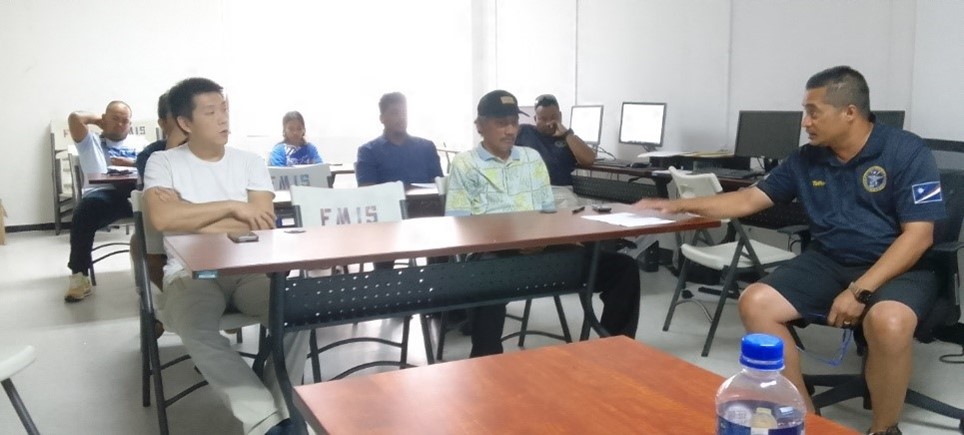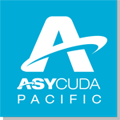In January 2023, the Republic of Marshall Islands (RMI) embarked on a transformative journey to revolutionise its customs operations with the implementation of the UN Trade and Development’s (UNCTAD) ASYCUDAWorld system, a significant step forward in RMI’s commitment to progress and economic prosperity.
The ASYCUDAWorld implementation transcends a mere technological enhancement; it is a reflection of RMI’s unwavering dedication to advancing its customs services. In collaboration with the European Union under the auspices of the IMPACT project, RMI Customs Division is set to streamline processes, bolster efficiency, and integrate automation to propel its operations into the forefront of the digital era.
This initiative began with a comprehensive review of existing customs procedures, actively involving government and private stakeholders in Majuro and Ebeye. This critical phase established the groundwork for the Inception Report, a key document adopted by the RMI Finance Ministry that delineates the project’s direction.
Following the successful ASYCUDAWorld Mobilisation Seminar in May 2023, with engagement of both government and private sector stakeholders has reinforced a shared commitment to transparency and inclusivity through the implementation process.
Capacity building and system acquaintance
The focus then shifted to capacity building, encompassing both functional and technical aspects. Customised training programs were designed to empower the National Project Team with essential skills, complemented by the deployment of prototype servers to facilitate hands-on learning and stakeholder engagement.
Defining roles, responsibilities and transparency
The implementation of ASYCUDAWorld necessitated a reengineering of business processes to boost productivity and efficiency. A transparent framework was established, detailing the RMI customs operation within the ASYCUDAWorld system. Standard Operating Procedures (SOPs) and Terms of References (TORs) for new roles were drafted, providing clarity on task execution and ensuring a mutual understanding of responsibilities among all parties. These documents received approval from the RMI’s ASYCUDAWorld Project Steering Committee.
Introduction of the Harmonised System (HS) for commodities
Transitioning from a commodity description-based tax calculation system to the Harmonised System (HS) codes for goods classification marked a significant shift for RMI’s customs personnel and traders. Despite the learning curve, customs staff are undergoing training to master commodity classification using the HS, with further updates on the lates HS 2022 coding underway.
Tackling technological challenges in RMI
RMI faces obstacles such as power outages and outdated IT infrastructure. However, proactive steps like acquiring essential hardware and installing backup power solutions demonstrated the government’s resolve to surmount these challenges.
Collaborations with international partners, including the Oceania Customs Organization (OCO), were crucial in reviewing and finalizing customs legislation and bridging compliance gaps with global standards.
Supported by external funding, recruitment initiatives aimed to strengthen the customs workforce with experienced professionals, facilitating a seamless transition to the new system.
Future outlook
With steadfast commitment to modernization, RMI is gearing up for the next phase, with key milestones for electronic manifest and declaration submissions set for July 2024. Through ongoing collaboration, capacity building, and adaptive strategies, RMI is on course to join Pacific neighbours in customs efficiency and digital innovation.
As RMI embraces this transformative era, it anticipates a more streamlined, transparent, and advanced customs infrastructure.
About ASYCUDAWorld: ASYCUDAWorld is a cutting-edge customs management system by UN Trade and Development, aimed at simplifying trade and customs processes.
About the IMPACT Project: Funded by the European Union, the IMPACT project seeks to enhance customs operations through technological advancements and capacity building.

© UN Trade and Development ASYCUDA Pacific.

© UN Trade and Development ASYCUDA Pacific.


